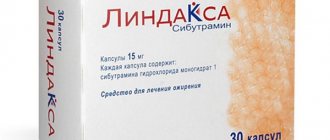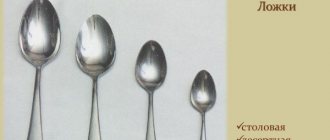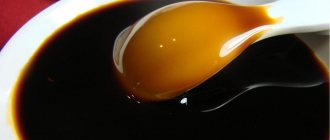Share:
Many people, in their pursuit of a healthy lifestyle, think about how to give up salt. After all, we have been told since childhood that salt is poison. Is it so?
The norm for salt consumption is 3-5 grams per day, that is, one level teaspoon. This is the recommendation given by WHO in the guide “Sodium Intake for Adults and Children”. Most people consume this flavoring in quantities exceeding the norm (sometimes 2 or more times), which leads to increased blood pressure, diseases of internal organs and even cancer. Avoiding salt will improve your well-being and help you get rid of swelling and excess weight. However, you need to give up the habit of adding salt to your food correctly. From the article you will learn what giving up salt gives and how to properly quit the habit of adding NaCl to food.
What are the benefits of giving up salt?
Scientists from Tufts University (USA, Massachusetts) conducted the largest study on the effects of salt on the body in 2017. The researchers concluded that limiting salt intake is not a dietary fad, but a vital necessity. Scientists have calculated that excess salt causes every tenth death.
In turn, reducing salt consumption, or rather refusing to add additional salt to dishes, has a beneficial effect on the functioning of many systems and organs. Let's consider the most likely positive consequences of salt-free diets. Read more about the study in the source.
There are several good reasons for giving up salt, and they will affect the following aspects of your life:
- improvement of appearance;
- improvement of well-being;
- stabilization of psycho-emotional state.
- positive restructuring of taste sensations.
Appearance
Sodium chloride retains water in our body, which leads to facial puffiness. And for those who suffer from hypertension or have problems with the kidneys and excretory system, swelling of the extremities also occurs. By stopping using NaCl, you will get rid of swelling and love your reflection in the mirror.
The second point of improving your appearance is losing weight. In 2 weeks of complete abstinence from salt and proper nutrition, you will lose 3-4 kilograms of excess weight.
Well-being and immunity
A salt-free diet stabilizes blood pressure, improves the functioning of the cardiovascular system, relieves headaches due to chronic fatigue, and helps the body tolerate stress more easily. As a result, overall well-being improves and the body's resistance to infectious and viral diseases increases.
Psycho-emotional background
Every time you show willpower and get a tangible result of this action, your self-esteem, self-confidence increases, and your mood improves. By adhering to a salt-free diet, you will not only improve your health, but will lift your mood and stabilize your overall emotional background.
New taste of food
Without sodium chloride, food will take on a new taste. You will feel the true taste of fresh tomatoes, cucumbers, bell peppers, and try new combinations of products. Your taste buds will simply “reboot” and begin to sense the taste of food more acutely.
Low salt water: good or bad?
In recent years, people have increasingly begun to choose water that has undergone reverse osmosis technology. At the moment, this is one of the most popular water purification methods in the world. Water after reverse osmosis does not contain impurities, bacteria, and has a low salt content. However, some people are of the opinion that drinking low-mineralized water can cause poor health and serious illnesses. Let's try to figure out if this is so.
An excursion into history. In the 80s of the last century, Russian scientists published a document entitled “On the influence of drinking water on health.” It stated that drinking water should contain at least 100 mg/l of salts in order to avoid leaching of minerals from the body. However, the evidence base and arguments in defense of this provision were questioned by scientists in America and England, who brought counter-arguments, no less significant, in defense of low-mineralized water. To date, the evidence base that would confirm the harm of low-salt water has not been replenished with new research, but the ranks of supporters of drinking low-mineralized water have increased manifold.
When talking about the degree of mineralization of water in everyday life, we operate in terms of water hardness and softness. We hear a lot about this on television, don’t we? Drinking water was analyzed by the United States, Canada, WHO and the European Community (EC). All of them tried to identify standards for its quality, but none of them determined what amount of salts is minimal and optimal. At the legislative level, the maximum permissible concentration of salt per liter of water was determined, which is consistently becoming more stringent both in general and in relation to individual components. Thus, in the USA the standard defines the maximum salt level as 500 mg/l, in Canada it is less than 1,000 mg/l, and the maximum permissible salt concentration according to the EC is 1,500 mg/l (for “dry residues”).
Water is an excellent breeding ground for microorganisms, which are found in large quantities in untreated and untested water. The membrane in a reverse osmosis system is a hypersieve because the size of the holes in the membrane is compared to the size of the water particle. The membrane pores (0.0001 microns in size) are much smaller than bacteria (0.2 - 1.0 microns) and viruses (0.02 - 0.4 microns), which allows them to retain any contaminants (such as barium, cadmium, hexa- and trivalent chromium, lead, mercury, selenium, fluorides, nitrites, nitrates, etc.) and as a result obtain exceptionally pure water. Reverse osmosis systems purify water from mechanical, bacteriological and chemical contaminants. Each of these types of contaminants must be removed using a special type of filter cartridge. Dirty water, passing through successive cartridges, is purified from ever smaller fractions of contaminants, leaving the filter perfectly clean.
Some people think that by drinking distilled water, they additionally protect themselves from harmful particles; they even believe that it helps get rid of arthritis, since it “washes out” excess calcium from the joints. Others believe that distilled water leach minerals from the body and thus cause mineral deficiencies and negatively impact health and overall well-being because distilled water is so purified that it is dead. There is also an opinion that drinking reverse osmosis water has a bad effect on health, since water with a low salt content supposedly “washes out” beneficial salts from the body. It was on this thesis that the report of Soviet scientists of the last century was based.
Their report states that the water lost through sweat should be replenished not with plain clean water, but with water with salt. Who would disagree with this conclusion? Loss of fluid during sports training or in the heat has nothing to do with the use of ordinary clean water for drinking and cooking; we get all the beneficial substances and salts from our normal diet. In normal daily activities, we obtain much more salts and nutrients from our diet than from water. In short, the human body is not a copper pipe that “leaches” in the presence of purified water. In this regard, the report is one-sided and simply misleading. In addition, in normal human activities, water is often combined with other elements (for example, coffee, tea, fruit juices, soft drinks, etc.), which increase their level of mineralization. But in addition to external sources, the level of salts is replenished through saliva and gastric juice.
Various sources were reviewed and no scientific evidence was found to show that consuming low-salt water could lead to health problems. At the same time, there is a lot of information indicating that there will be no harmful consequences. By the way, the US Navy has been using distilled water for consumption for 50 years. This drinking water usually contains less than 3 mg/l of salts. Submarine crews use this water continuously for several months. And the Navy representative claimed that drinking low-salt water throughout the years did not cause any health problems, and his health was always good.
Having considered various sources, we can conclude that drinking water with low salt content does not lead to harmful effects in the human body. Moreover, regardless of whether the water is of natural origin or obtained through the process of reverse osmosis. This conclusion is based on the following critical points.
- No health organization in the world has precisely established minimum requirements for the composition of salts in water.
- The body's own control mechanisms, such as homeostasis and the body's internal secretions, keep the composition of body fluids in strict control regardless of the TDS of drinking water in a healthy person under normal conditions.
- None of the scientific works describe the harmful effects on the human body of drinking water with low TDS content.
- Millions of people regularly consume low TDS water from natural sources without any signs of ill health.
In any case, everyone decides for themselves what water to drink and what research to believe. Be healthy!
The benefits of avoiding salt for weight loss
If you are training with the goal of losing excess weight and shaping your figure, then by stopping eating salty foods, you are more likely to achieve the desired result. NaCl retains the water-salt solution in adipose tissue
Eliminating salt is especially useful for athletes involved in sports such as figure skating, gymnastics, and martial arts, where every 100-200 grams of weight can affect their own performance or weight category.
Avoiding excessive salt intake will benefit anyone working out at home or in the gym. Less salt means less excess fat in the body.
Salt-free diet: benefits
Salt is found in all products because of its ability to improve appetite and enhance the taste of food, but the dose in some is so minimal that it is practically not felt.
Scientific research has proven that excess salt in the body causes:
♦ swelling;
♦ accelerated development of obesity and hypertension;
♦ load on blood vessels and heart due to excess fluid.
Only 1 gr. retains 100 ml of salt in the body. water!
In order for salt to bring only positive qualities, it is necessary to consume no more than 5-6 grams per day. (1 teaspoon).
According to doctors, a diet without salt helps patients who have difficulties with the excretory process, suffering from:
♦ kidney inflammation;
♦ high blood pressure.
In addition, reducing salt intake significantly reduces swelling of the body, eliminates false feelings of hunger, and reduces the size of the figure. It is worth remembering that the body does not store sodium in the body, but receives it continuously only from incoming food products.
Will there be any harm if you don't eat salt at all?
Is there any harm in not eating salt? The valuable element that we get from table or table salt is sodium. In addition to salt, it is found in many foods that we eat for breakfast, lunch or dinner. Therefore, if you stop adding white crystals from the salt shaker to your food, you will not lose anything.
Table of foods that contain the most sodium:
| The product's name | Amount of sodium (mg/100 grams of product) |
| White bread, rich loaf | 240-250 mg |
| Rye bread | 430 mg |
| Cornflakes | 660 mg |
| Sauerkraut | 800 mg |
| Canned beans | 400 mg |
| Mushrooms | 300 mg |
| Beet | 260 mg |
| Celery | 125 mg |
| Raisin | 100 mg |
| Bananas | 80 mg |
| Dates | 20 mg |
| Currant | 15 mg |
| Apples | 8 mg |
| Milk | 120 mg |
| Cottage cheese | 30 mg |
| Eggs | 100 mg |
| Hard cheese | 1200 mg |
| Beef, pork | 100 mg |
| Fish | 100 mg |
You can download the table here to always be aware of the salt content in other foods.
When adding salt to food, remember that it already contains sodium. An excess of this chemical element is just as bad as its deficiency.
Sources of salt
For normal functioning, the body must regularly receive sodium chloride. Since 2021, there have been recommendations in Russia according to which a healthy adult should consume up to 10 g of NaCl (or 4 g of sodium) per day.
A smaller amount - 3-5 g - was recommended for people with chronic heart disease. In 2021, the daily salt norm has been revised. WHO experts announced a figure that is half the usual value: 5 g per day (sodium content - 2 g). Representatives of the Ministry of Health of the Russian Federation announced their intention to adjust the previously adopted norm, but clarified that the new value is advisory in nature.
To illustrate how much salt a modern person consumes, nutritionists calculate its content in common dishes. So 5 g of sodium chloride is in 100 g of regular boiled sausage or Jill cheese. This means that with one of these products a person already receives the daily requirement of the mineral and must abstain from it during the day.
But is it so easy to refrain from “over-salting”? There are many products containing NaCl. The table below shows the most common examples.
| Name | Sodium content per 100 g of product |
| cheese, sauerkraut | 0.8 g |
| green beans | 0.43 g |
| wheat flour bread | 0.4 g |
| beet | 0.26 g |
| milk, celery | 0.125 g |
| eggs, fish, raisins | 0.1 g |
| pork, veal | 0.08 g |
| bananas | 0.05 g |
How to gradually give up salt?
Adding salt to food is a habit that has been compared to smoking, however, giving it up is easier than quitting smoking . Is it possible to completely give up salt? Of course yes! The main thing is to gradually get used to the new taste of food, teaching your body to do without this ubiquitous product. A few simple principles will help you train yourself to eat less salty foods and not add NaCl when preparing food.
Read the composition
When buying products in a supermarket, carefully read the ingredients on the packaging. Choose seasonings and spices without salt, as well as other products that contain minimal sodium chloride. It is desirable that the description indicate less than 0.3 g per 100 grams of product. If a larger quantity is indicated, refuse to purchase. To determine the amount of salt in a product, multiply the amount of sodium in its composition by 2.5.
Add pepper and other spices to your dishes
Red and black pepper, dried spices and herbs, chili peppers not only give the dish an appetizing aroma, but also brighten the taste of the food. With them, it will be easier for you to quit the habit of using salt from a salt shaker to prepare salads or other dishes. Do not overdo it when adding spices, so as not to cause problems with the gastrointestinal tract.
Eat fresh greens
Parsley, dill, celery, lettuce, coriander, basil, and green onions add special flavor notes to food. You definitely don't want to overpower them with salt. Properly combine greens with other vegetables. The taste and aroma of boiled potatoes is enhanced by dill, basil “suits” tomatoes, and lamb and beef dishes go perfectly with rosemary and coriander.
Avoid ketchups, mayonnaises and sauces
Mayonnaise, ketchup, soy sauce and mustard contain a lot of salt. By adding them to the main dish, you increase the salt content. If you want to eat healthy foods, stop eating them.
Instead of store-bought mustard in a jar, buy dry mustard powder. Mix a small amount of powder with water and sugar. You'll get the same tangy flavor as ready-made mustard from the supermarket, just without the salt.
Replace sauces with low-fat sour cream or a mixture of garlic, herbs, lemon juice and cilantro or arugula. This mixture will give the dish a light piquant taste and a special aroma. It goes well with fish and meat dishes, rice, and sushi.
Eat homemade food
Surely you have noticed that after eating fast food, pies or dumplings from the supermarket, you are thirsty. They add a lot of salt to make them last longer. Eliminate these “treats” from your diet first.
Try to cook more yourself using the fresh ingredients you buy. Take a light, healthy snack with you to work that will replace pizza, buns and other useless foods that contribute to obesity and gastrointestinal problems.
The harm of salt to the human body and the norms of its consumption.
Food additives in the form of various seasonings are so ingrained in human life that it is almost impossible to imagine their absence. Regular table salt is used to prepare everything from ordinary scrambled eggs to complex, expensive gourmet dishes. Few people think about the dangers of salt, since its use is something ordinary. So, let's figure out what value it has for the body and consider ten reasons why you need to abandon this product.
Consequences of not eating salt
Should I give up salt? An analysis of the positive and negative effects of a salt-free diet will help you make a decision.
Positive effects of not eating salt:
- Stabilization of blood pressure, prevention of thrombosis, stroke.
- Getting rid of swelling on the face and limbs.
- Normalization of the excretory system, reducing the likelihood of kidney stones, reducing the load on the kidneys.
- Reducing the risk of diseases of the musculoskeletal system (arthritis, arthrosis).
- Weight loss by an average of 1.5 kilograms per week.
- Improving vision by normalizing pressure in the circulatory system and proper drainage of fluid from the tissues surrounding the optic nerve.
- Increased sensitivity of taste buds.
Negative consequences:
The salt-free diet is a strict nutrition program. It will be hard for you to get used to it in the first week. The food will seem tasteless and bland. Appetite will decrease and there will be a slight emotional decline. However, this condition gradually passes and health improves.
Note! The condition may worsen in the first days. Experts recommend reducing the amount gradually until you stop completely.
Reason #4. Deterioration in the performance of the cardiovascular system
The harm of salt is more noticeable when examining the SSD in detail. It would seem like a simple seasoning, but it has a negative effect on the walls of blood vessels and leads to peculiar spasms. As a result of such exposure, hypertension develops, blood pressure rises, and due to the large accumulation of fluids, blood clots form. Also, quite often it is salt that causes strokes, and this can lead to irreparable consequences. By the way, according to some studies, a lack of NaCl in the body can also lead to the formation of blood clots, so it is very important to maintain the balance of this component without going beyond normal limits.
Reason #5. Obesity
The problem of obesity occupies a leading position throughout the world. This disease is especially noticeable in Western countries, and salt is also the cause. Since this element retains fluid in the body, its remains accumulate in fat cells, which leads to the formation of extra pounds. Although salt is gradually eliminated from the body, fat is a kind of reserve and NaCl leaves the body from here last. Considering that the excretory system can remove a maximum of only 2 g of product per day per day, the process of losing weight can take several years, and this is in the case of following a salt-free diet.











